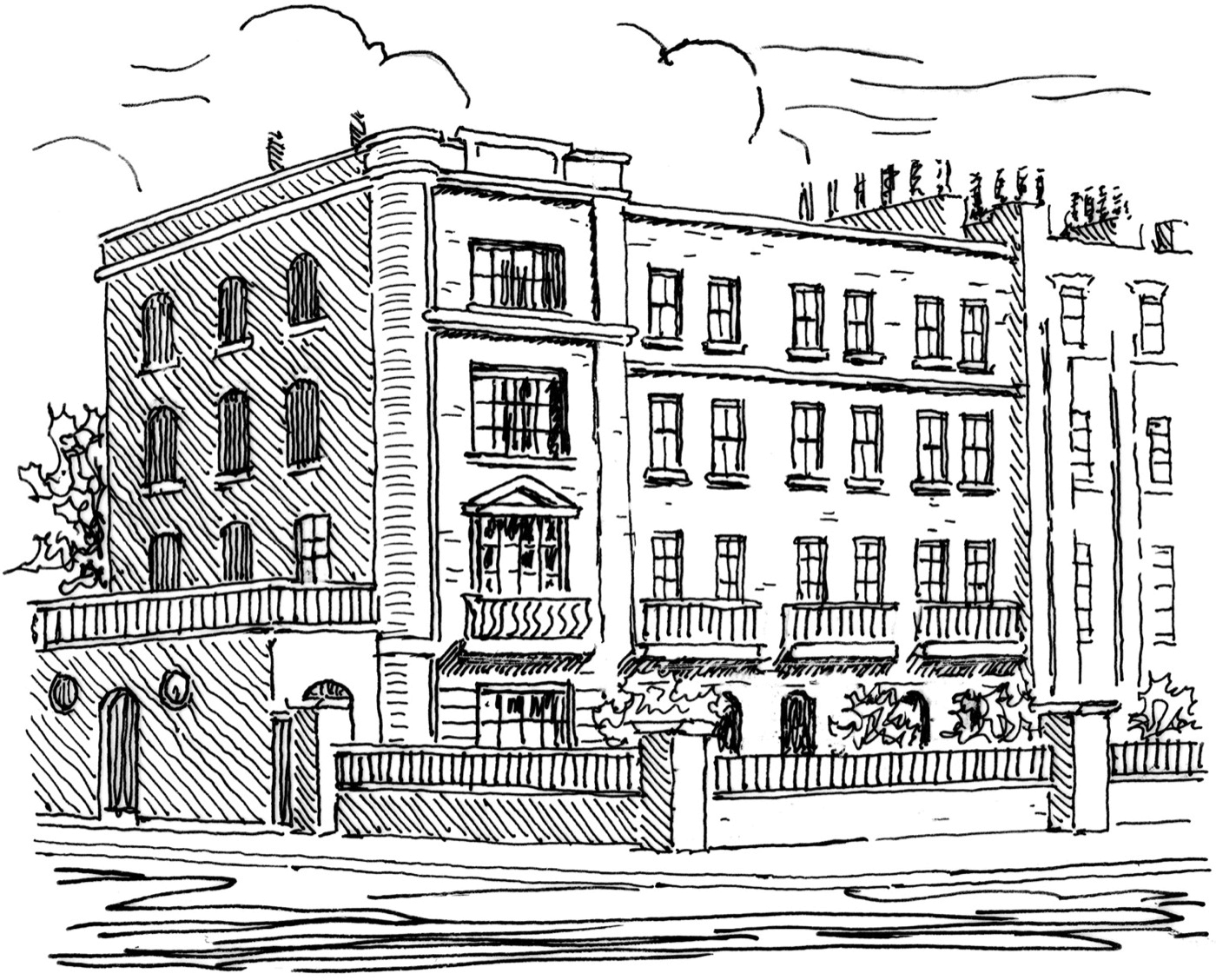Chapter 2
Hidden Talents
The Marshalsea Prison was a debtors’ prison. John Dickens had to stay there until he paid what he owed.

Except for Charles and Fanny, the whole family moved into Marshalsea Prison. Fanny boarded at her music school, and Charles moved in with Mrs. Roylance, a woman who rented rooms to working children. She didn’t treat Charles very well. Every Sunday, Charles and Fanny would walk twelve miles to visit the family. On one of these visits, Charles convinced his father to find him a nicer place to stay, but he never forgot the terrible Mrs. Roylance.



His father’s troubles had made Charles terrified of debt. When he got his own pay each week, he divided the coins into seven equal piles. He wrapped those in little sacks and wrote the name of each day of the week on a different stack of coins. The sack for Wednesday would never be opened until that day. In this way, Charles learned to spend money only when necessary.
In May 1824, John Dickens was released from prison. He had inherited enough money to pay off his debts. Soon Charles no longer had to work at Warren’s.
His mother was angry that Charles was no longer working. She wanted to send him back. To Charles, his father was a hero for rescuing him from the factory, and his mother was a villain. “I never afterwards forgot, I never shall forget, I never can forget, that my mother was warm for my being sent back,” Charles said. The family never spoke of it again.

Charles returned to school. At Wellington House Academy, the teachers were strict, but Charles loved it. After so many months at the factory, he threw himself into games, theater, and jokes. He hid mice and bees in his desk, and made tiny stagecoaches for the mice to ride. He wrote stories and started his own newspaper. Other boys paid for copies with marbles. He made the boys laugh by pretending to speak in a foreign language he had made up himself.

Only two years later, when Charles was fifteen, his father fell into debt once again and could no longer pay for school. Charles went to work as a clerk at the Ellis and Blackmore law firm in May 1827. On his first day, he wore a military-style cap that tied under his chin. When his new bosses sent him out on an errand, he came back with a black eye!

Charles explained that a man in the street had made fun of his cap and knocked it off, and they had gotten into a fight. His bosses weren’t shocked by the story, but they were shocked by how he told the story. He acted it out for them, playing both parts, plus the parts of onlookers. When he imitated the man making fun of his hat, his bosses couldn’t stop laughing.
The more they spoke to their young clerk, the more amazed Ellis and Blackmore were by how well he knew London—the streets, the stories, the colorful characters. Their new clerk had hidden talents as a storyteller!
